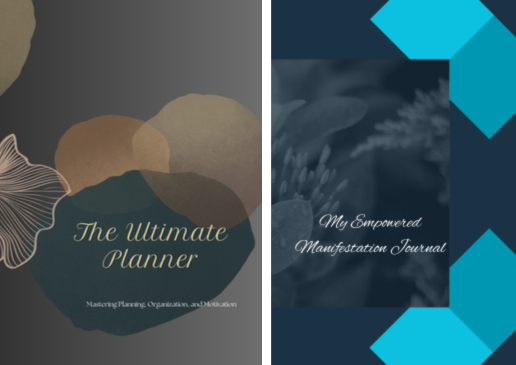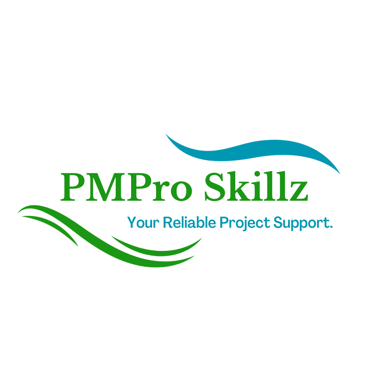Learn From Your Past to Improve Your Future: The Power of Retrospectives
Whether you're tackling personal passion projects or managing small ventures, intentional reflection can be your secret weapon. Learn how to conduct effective retrospectives, celebrating your achievements, identifying key insights, and optimizing for future success. From solo reflections to shared experiences and practical exercises, this comprehensive guide will guide you towards greater growth and achievement.
Iyanna Trimmingham
8/18/20235 min read


Embarking on personal or home-based projects can be both exhilarating and challenging. We pour our heart and soul into these endeavors, witnessing both triumphant successes and disappointing setbacks. Whether a project surpasses our expectations or falls short, there's a wealth of wisdom to be gained through intentional reflection.
This practice of purposeful reflection is known as a "retrospective." It provides the space to step back and examine our efforts to optimize our future performance. While retrospectives are a cornerstone of Agile teams' project management, they're equally valuable for personal growth and small project success.
In this article, we'll delve into the art of conducting effective retrospectives. From solo reflections to shared experiences and practical exercises, we'll explore various approaches that cater to individual pursuits. Let's uncover how retrospectives can elevate your endeavors by learning from the past, celebrating achievements, identifying improvements, and ultimately crafting a brighter future.
The Power of Reflection: Elevating Personal and Professional Development
Why are retrospectives so powerful in driving growth and development?
Fresh Perspective: Gaining an objective bird's-eye view of accomplishments, emotions, behaviors, and challenges allows us to see the bigger picture.
Improved Mindset: Reflecting highlights our progress and strengths, instilling motivation, and self-confidence for continued success.
Corrective Action: By carefully examining issues that hindered success, we uncover solutions to steer us towards a stronger path.
Celebration: Reflecting prompts us to acknowledge our efforts, wins, and outputs, fostering a sense of pride and accomplishment.
Self-Awareness: Analyzing our patterns cultivates emotional intelligence, revealing our blind spots, motivations, and conditions for peak performance.
Wisdom: Regular self-assessment contributes to our maturity as we navigate the ebb and flow of complex projects.
Diagnostic Data: Retrospectives yield valuable data points that help us pinpoint root causes and implement targeted improvements.
Accountability: The knowledge that a retrospective awaits us drives greater accountability, leading to ownership of outcomes.
By systematically dissecting our efforts, plans, emotions, and behaviors, we unlock key insights that drive positive change and propel us towards success.
Retrospective Approaches: A Journey of Personal Growth


Solo Retrospectives: carve out 30-60 minutes for focused self-reflection on a completed effort. Ask yourself questions such as:
What went well and why? Take time to appreciate your successes.
What proved challenging and why? Delve into the underlying root causes.
How did I perform against goals and expectations? Provide a factual assessment.
How did my leadership, communication, and time management contribute to outcomes? Analyze strengths and growth areas.
What three key learnings emerged? Synthesize takeaways.
What specific process improvements will I implement next time? Outline 1-3 actionable steps.
What support or resources do I need moving forward? Identify areas for improvement.
What accomplishments am I proud of? Celebrate your achievements.
How did this experience foster my growth? Acknowledge your progress.
This introspective approach cultivates objective diagnosis and paves the way for applying your newfound insights.
Shared Retrospectives:
Collaborative retrospectives open doors to different perspectives. Engage with project teams, mentors, peer buddies, managers, or even family members. This sharing creates a trusted space for vulnerability, stimulates new insights, and offers support.
Retrospective Exercises:
Beyond verbal discussions, incorporate engaging exercises like timelines, metrics reviews, emotion journeys, reflection questions, affinity mapping, plus/deltas, goals analysis, and appreciations. These exercises diversify inputs and cater to different preferences and personalities.
Retrospective Cadences: Timing for Success
Thoughtfully choosing when to conduct retrospectives maximizes learning:
End of Key Milestones: Analyze achievements and lessons at crucial checkpoints.
Annually: Reflect on accomplishments and growth over a year, setting the stage for the next year's goals.
Quarterly: Course-correct by reflecting on trends from the past 3 months.
Monthly: Regular check-ins allow for incremental improvements.
Weekly/"Friday Reflections": Examine your progress each week, capitalizing on fresh insights.
After Major Events: Seize the opportunity to cement learnings after significant experiences.
Ongoing Journaling: Consistently writing reflections uncovers patterns over time.
Align the retrospective cadence with your pace, goals, and needs to reap the maximum benefits.
Retrospective Outputs: Documenting Insights for Future Success
Documenting retrospective insights cements your learning:
Executive Summaries: Concisely synthesize key findings to share lessons learned.
Annotated Timelines: Capture milestones, achievements, and pitfalls for future reference.
Analyses: Chronicle metrics, goal achievements, and action items to quantify progress.
Updated Plans: Apply insights immediately to optimize future plans.
Presentations: Share progress and pivot opportunities with stakeholders to gain alignment.
Templates: Reuse exercises and questions for recurring projects.
Wiki Pages: Centralize insights for institutional knowledge and reference.
Comprehensive documentation transforms insights into an asset that enhances personal learning and continual team improvement.
Tips for Impactful Retrospectives: Maximizing Learning and Growth


Set Intention: Establish clear goals and purpose upfront.
Foster Psychological Safety: Create a judgment-free space to encourage openness.
Encourage Active Participation: Draw out diverse voices to gather rich inputs.
Balance Reflection and Forward Action: Shape the future while revisiting the past.
Focus on "What" Over "Who": Critique actions more than individuals.
Track Action Items: Assign owners, timeframes, and follow-ups to operationalize insights.
Timebox Effectively: Allocate time for synthesis, analysis, and celebration.
Close Positively: Conclude on a future-focused, upbeat note.
Well-facilitated retrospectives spark insights, reinvigorate energy, and inspire commitment to applying lessons learned.
Overcoming Resistance to Retrospectives: Embrace Growth with Empathy
Address common reasons people resist retrospectives and how to mitigate them:
Fear of Failure/Criticism: Establish a non-judgmental, growth-focused tone.
Discomfort with Emotions: Begin fact-based, gradually introducing reflections on feelings.
Lack of Self-Awareness: Use probing questions and mindfulness practices.
Boredom with Routine: Keep it engaging with varied formats and elements of fun.
Lack of Skills: Provide coaching on reflection and key skills.
Bias Toward Action: Balance backward and forward-looking focus.
Complacency/Laziness: Ensure accountability and consequences.
Leaders can nurture engagement with empathy, positive reinforcement, and by showcasing the tangible benefits of retrospectives.
Inspiring Examples: Applying Retrospectives Across Domains
Real-world examples illustrate the impact of retrospectives:
Career: Monthly self-assessments drive a young professional's skill gains.
Relationships: Quarterly "marriage health check" dates foster ongoing improvement.
Startup: "Lessons learned" workshops enable quick adjustments.
Personal: Post-training run reflections optimize future workouts.
Education: "Weekend Reflections" enhance learning strategies.
Health: Monthly symptom reviews optimize care plans.
Consistently dedicating time to reflection yields measurable outcomes across various contexts.
Putting It All Together: Cultivating Growth Through Reflection
In summary, purposeful retrospectives offer invaluable benefits:
The gift of perspective for appreciating accomplishments and insights.
Diagnostic data to pinpoint root causes and drive improvement.
Improved self-awareness for personal growth and peak performance.
Celebrating progress and boosting confidence.
Cementing lessons learned for immediate application.
Building wisdom through the ebb and flow of challenges.
Heightened accountability for outcomes and growth.
Much like physical training strengthens the body, regular, structured reflection enhances mental fitness and emotional intelligence. Devoting time to retrospectives allows you to digest experiences, synthesize key learnings, and commit to continuous improvement.
As you conclude your future endeavors, take a moment to look back before moving forward. Mine your experiences for treasures that will propel your journey towards success. The investment in retrospectives will yield exponential dividends across the arc of your life.



